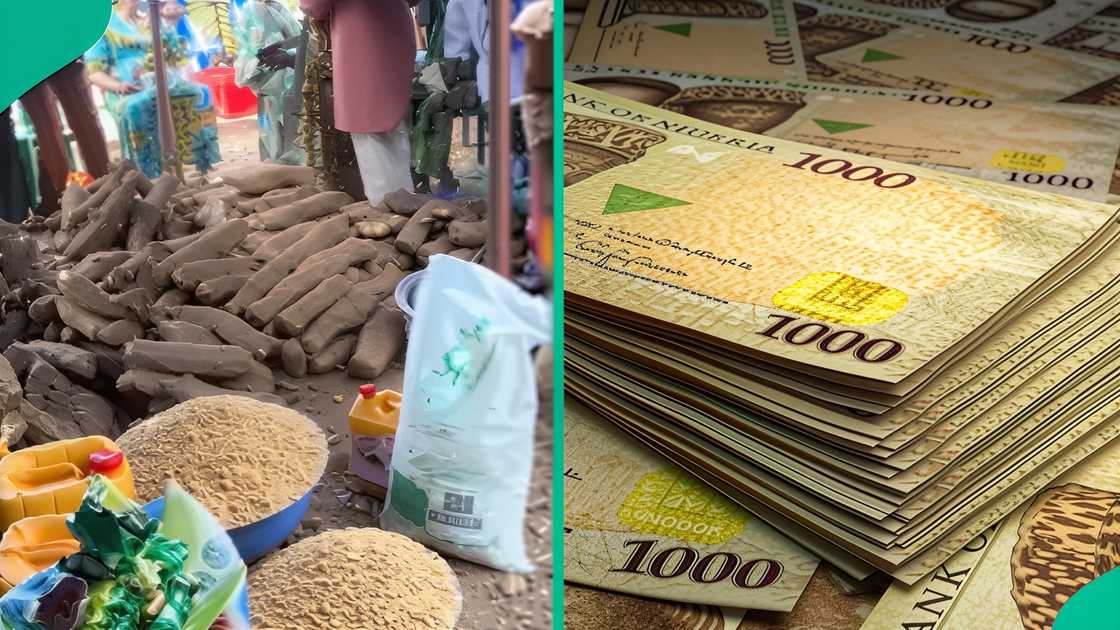Understanding Bride Price in Igbo Culture: Traditions, Legal Views, and the Cost of Marriage
For the Igbo people of southeastern Nigeria, the age-old practice of bride price serves as a seal during marriage between two individuals, as it binds the family together. In recent times, several discussions about the significance of bride price have taken over the media.
Far from being a mere financial transaction, bride price traditionally symbolises respect, gratitude, and recognition of the bride’s family.
Over time, what began as a symbolic gesture has stirred debates over excessive demands, legal interpretations, and even women’s rights.

Source: TikTok
This article explores the roots, variations, and legal views about bride price in Igbo culture.
Tradition of bride price payment in Igbo culture
In Igbo tradition, the bride price was never meant to be a commercial exchange but a symbolic gesture of gratitude and honour.
It reflected the groom’s respect for his bride’s family and marked the official bond between both households.
The items often presented—such as kola nuts, palm wine, yams, goats, wrappers, and a modest amount of money—were tokens of appreciation for the woman’s worth and the care invested in raising her.
In many Igbo communities, this payment was regarded as a vital requirement for validating marriage, and without it, the union could be dismissed as incomplete or even disrespectful, particularly by elders and custodians of custom.
Regional differences in Igbo bride price
There are six southeastern states in Nigeria (Anambra, Imo, Enugu, Abia, Ebonyi) and their mode of payment of bride price may vary based on the culture.
According to a chieftain of Mbaise in Imo State, Kanayo O. Kanayo, who is also a popular actor, bride price varies from family to family.
While responding to a story about a N1 million bride price from an Mbaise family, the chieftain said:
“I have been a son of the southeastern part of Nigeria and I know that 85 % of the communities do not have bride price written in a particular book. It is relative to any family you visit. In Mbaise, that I am addressed as ‘Ihe Mbaise Ji Ka Mba’, I know very well that from family to family, it varies.”
In an interview with Vanguard, the traditional ruler of Nkaliki Unuhu Achara autonomous community in Izzi, Ebonyi State, Ezeogo Sunday Oketa, called for the unification of bride price among Igbo states.
He said:
“In Izzi clan, the cost of marriage is not high compared to other parts of Igbo land. When I gave my daughter out in marriage, I only collected N1,000 as dowry. They said we demand native cow, that is true but it is not compulsory; it depends on the in-law’s financial capacity at that point in time. The in-law can bring goat or money in place of cow. It is not compulsory to bring cow before you take your wife.
“I will advise Igbo traditional rulers and community leaders to come together to have unified traditional method. We should streamline the cost of marriage rites and make it easier for young men. I have written a book or rules in my community suggesting the best way to go, and if adopted, it will help both the parents, young men and women.
What does Nigerian law say about bride price?
A Nigerian lawyer, Stan Alieke, made strong claims about the Igbo customary law, as it pertained to bride price.
He said:
“Under the Igbo customary law, payment of bride price is what validates paternity and not even DNA. This means that if your father is yet to pay the bride price on your mother, you will be presumed to be fatherless.
“Also, you as a father of the child will not be allowed to take the child until you have paid the bride price on the mum even if the mum is dead.”

Source: Getty Images
According to Emenike Chioke Esq., human rights lawyer and managing partner, Toplaw and Attorneys, the law only supports bride price payment, not the list.
His words:
“Bride price, which is a symbolic “token” handed over to the father of the bride by the groom is a valid and lawful customary marriage practice, but the issue of “list” whereby items and cash prices worth millions of Naira is alien to our customary marriage practice, and is totally outlawed by the Traditional Marriage Laws of various states which prescribes that bride price is a token of sixty naira (N60) or like sum, and the law is still valid."
In a chat with Legit.ng, a Nigerian lawyer, Gift Nwokemba, spoke about the effectiveness of the bride price in law.
Her words:
"Under the customary law, payment of bride price is the seal upon which the validity of that customary law is based. It is recognised in our laws in Nigeria.
"When you see people who got married under the customary law start having issues, they can go to customary courts for the dissolution of the marriage. The courts will ask, 'have you returned bride price?' Because it's a symbol that shows the validity of that marriage. So it is very effective in law."
Bride price in Igbo culture remains one of the most enduring customs in Nigeria, reflecting values of respect, family, and tradition.
While the law and cultural expectations continue to shape its relevance, one truth remains: bride price is more than a transaction; it is a cultural symbol whose meaning must strike a balance between heritage and modern realities.
Lady seeks help for bride price
Meanwhile, Legit.ng previously reported that a lady planning her marriage seeks financial assistance for the bride price, as her fiancé was unable to afford it.
The bride price was reduced, but the fiancé was still unable to pay, prompting her to seek assistance.
She mentioned why she decided to marry the man, as she asked for shoes and other items, sparking reactions.
Proofreading by James Ojo, copy editor at Legit.ng.
Source: Legit.ng






